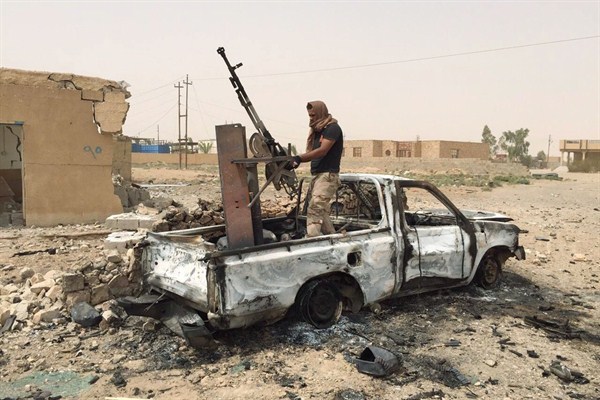For decades U.S. policy in the Middle East focused on two things: Israel and oil. Helping to keep Israel secure was not hard since the Israelis themselves had it well under control. Making sure that oil flowed was more challenging since most of it was owned by brittle monarchies or dictators, but the United States and its allies found a way. This emphasis on Israel and oil led to an American strategy that was remarkably consistent even when the White House changed hands. Its goal was stability built on partnerships with local states when possible and direct action if necessary.
Then things began to unravel. The George W. Bush administration abandoned America’s longstanding emphasis on stability and attempted to transform the region without committing the strategic resources that a task of that magnitude demanded, instead simply toppling the old order in Iraq and hoping a better one emerged. Discontent with the region’s authoritarian regimes, whether monarchies or old-fashioned dictatorships, exploded, driven by global connectivity and information technology. New violent, transnational, religious-based revolutionary movements proliferated and put down roots. And Iran continued to undercut the old order where it remained, often by playing the sectarian card and exploiting hostility toward Israel.
Today, as a result of all these forces, the Middle East is undergoing a radical transformation well beyond American control. Judah Grunstein believes that the near-to-medium term will see “a region where ad hoc and stove-piped coalitions form to address common interests in particular settings, even as the same countries might find themselves on opposite sides of a conflict elsewhere.” Eventually this is likely to evolve into a triangular system with three blocs competing for power. One will include the legacy systems such as the monarchies and traditional national dictators. It will be led by a newly assertive, economically powerful and heavily armed Saudi Arabia. The second bloc will be led by Iran and include Teheran’s motley crew of clients and proxies, including the Assad regime in Syria, if it survives; Hezbollah in Lebanon; the Houthis in Yemen and, most importantly, the Shiite militias and government in Iraq. Iran’s reintegration into the global economic system as sanctions are lifted may or may not increase its use of proxies to destabilize the region, but it will strengthen Tehran and may draw Russia and China into a more active role in the Middle East.

